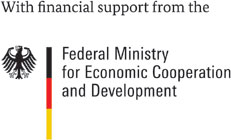The African continent is experiencing rapid demographic growth. It is expected that by 2050 the population of the continent will double. Currently, more than 50% of the population in Africa is under 30 years of age. The majority of youth and adults don’t have access to formal basic education. They are predominantly illiterates, since they don’t know how to read or write, neither in their mother tongues nor in one of the official languages (English, French, Portuguese or Spanish).
African leaders recognise the strong link between education and development, as indicated in their regional statement entitled “The Power of Youth and Adult Learning and Education for Africa’s Development” which was read during CONFINTEA VI held in Belém, Brazil in 2009. They articulated their commitment to mobilise and promote quality Youth and Adult Learning.
Unfortunately, in spite of the political statement made in Belém, very limited changes have been observed in Sub-Saharan African countries. Youth and Adult Learning continues to be under-resourced and under-funded in national budgets. To date, only ten African countries have made serious investment into both formal basic education and literacy and adult education.
Why do the majority of African countries lag behind in adult education? While it is true that lack of funding and clear commitment to the sub-sector of education account for the situation, often the limited quality and decontextualised curriculum contents drive away adult learners from the education programmes targeting them. Such programmes focus more on teaching literacy and numeracy than life skills and vocational skills. Consequently, the return for investment is very difficult to prove. It is equally difficult to show that significant social transformation or empowerment is developing among female and male learners. According to a 2002 World Bank study on adult education in four African countries “livelihood skills training with a literacy component is a far better vehicle for learning for adult learners than literacy training with a livelihood component”. Youth and adult learners are often driven by instrumental motivation. Therefore, training programmes must meet their needs before they can be involved.
The commitment made in Belém by African policy-makers must be imperatively renewed if African countries expect to be more peaceful, democratic and competitive in the global market. Most African countries have included literacy and adult education in their national education strategies. The availability of technology and social media makes it possible to develop more cost-effective and high-quality youth and adult education programmes. Adequate funding must be allocated for staffing and development of the programmes through an effective multi-sectoral approach because youth and adult learning and education is important for several sectors of the economy, including education, agriculture, health and nutrition.






